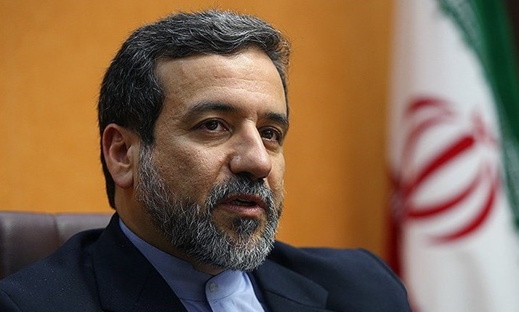Nuclear talks with P5+1 are in the news these days. Despite the media hype, Iran’s negotiating team seeks to settle the nuclear case. Given the progress made so far, they seem to have been somewhat successful on that front already.
At the same time, Iranian diplomats are not indifferent to what is going on in the world or in Iran’s relations with other nations. One such development has unfolded of late in relations between Tehran and Tokyo: Japan has raised its oil purchase from Iran to over 163,000 barrels a day.
Seyyed Abbas Araghchi, a deputy foreign minister and top negotiator who once served as Iran’s ambassador to Japan, has responded to a series of questions posed by Tejarat Farda (Tomorrow’s Trade), a weekly magazine, on January 3, 2015 about Tehran-Tokyo ties. What appears below is a partial translation of what the Iranian diplomat had to say in this regard as reported by Alef news website:
– Tokyo is a US ally and therefore it will move along in line with a series of policies set by the West, the US in particular. However, within that framework, Japan will carry on its friendly relations with Iran based on mutual respect.
– Although the West has exerted a lot of pressure and put a spoke in their wheel, Iran and Japan have succeeded in maintaining their ties. With nuclear talks between Iran and P5+1 in progress, the two countries are trying to open a new chapter in their ties. It could be said that the two nations are anticipating the removal of sanctions to allow relations to return to their past status.
– That Japan needs energy is undeniable. As a reliable and trustworthy energy supplier in the Middle East, Iran can meet such demand. In the sensitive conditions in the region, Japan and other nations in East Asia cannot ignore Iran.
– Over the past years, Japanese politicians have struck a balance between their ties with Iran and their relations with the West. Although they have not openly defined sanctions, they have carried on their economic cooperation as much as they can afford and kept the present channels open.
– All Japanese firms are willing to cooperate with Iran. In spite of the sanctions slapped over the last few years, they have not shut down their offices in Iran.
– The former Japanese foreign minister was the first top diplomat close to the West to visit Tehran prior to the Geneva interim deal. Even after the deal was clinched, the Japanese cooperated with us in implementing it.
– When Iran was in considerable need of banking cooperation, Japanese banks played a great role. The financial channels envisaged in the Geneva interim agreement were all opened up with the help the Japanese.
– The Japanese government is logical in commitment to oil sanctions and won’t go beyond them.
– As for a 98-percent rise in oil purchase from Iran by Japan, the average annual figure not the monthly stats should be taken into account, yet relations should be analyzed beyond a temporary purchase.
– I am not of the opinion that the Islamic Republic of Iran should present its oil cheaper than the market price or as they say, sell it off.
– Iran will be a major player in the regional energy market in the future and other nations should adapt themselves to our policies.
– Oil market is run by certain rule. In other words, it’s influenced by economic issues as well as political matters. Selling cheap oil over a short period of time is only one political factor.
– The Japanese might stop purchasing Iran’s oil under short-term contracts as a result of pressure from some regional countries, yet a majority of Japan’s refineries are compatible with Iran’s oil and the Japanese cannot swiftly make changes to their systems to make them compatible with oil from other countries like Saudi Arabia.
– Following the Geneva interim agreement, the US government made a lot of attempts to regain control over things after a [positive] atmosphere in favor of Iran emerged.
– A great deal of enthusiasm emerged among all nations for establishing relations with Iran. That threw the Americans into panic, prompting them to remind the world that the sanctions are still in place and only a small number of restrictions have been suspended based on what is agreed on under the Geneva interim deal. From my perspective [such strategy] has proved to be extremely futile.
– Japanese contributed to the banking channels that opened under the Geneva interim accord. They provided us with banking services more than other nations. We consider their contribution valuable.
